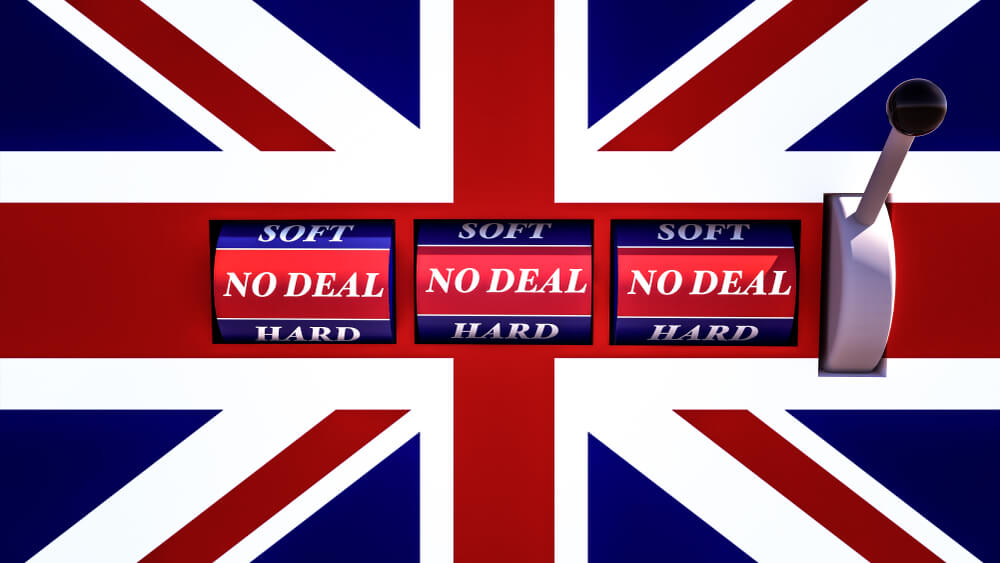European Council President Donald Tusk took a swipe Wednesday at some Brexit-backers in Britain, wondering aloud what “special place in hell” might be reserved for those who had no idea how to deliver the country’s exit from the European Union.
“I have been wondering what a special place in hell looks like for those who promoted Brexit without even a sketch of plan how to carry it out safely.”
With just 50 days to go until Britain is due to leave the EU and with mounting concerns about a potentially chaotic Brexit, Tusk, who chairs meetings of EU leaders, also appeared to dash any British hopes that the bloc would soon reopen discussions over the Brexit deal that was overwhelmingly rejected by U.K. lawmakers last month.
“I have been wondering what a special place in hell looks like for those who promoted Brexit without even a sketch of plan how to carry it out safely,” Tusk told reporters after talks with Irish Prime Minister Leo Varadkar.
Britain is due to leave the EU on March 29 — the first time a country has ever done so. British Prime Minister Theresa May is due in Brussels on Thursday with what she says is a parliamentary mandate to re-open the draft agreement, sealed after 18 months of intense and highly technical negotiations.
“The EU 27 is not making any new offer,” Tusk said, adding that the legally binding withdrawal agreement sealing the divorce, which May negotiated and backed vociferously, cannot be renegotiated.
Tusk and Varadkar underlined that preparations are being intensified for a ‘no-deal’ scenario under which Britain would leave without an agreement; a possibly disastrous development that could inflict heavy economic and political damage in the U.K. and the EU alike.
“A sense of responsibility also tells us to prepare for a possible fiasco,” Tusk said.
May is signaling she will seek changes to the deal rather than the outright removal of the controversial Irish border provision, which has so alarmed many Brexiters in the U.K. Parliament.
The so-called backstop is designed to preserve the open border between Northern Ireland and EU member state Ireland in light of the fact that May has insisted that the U.K. does not remain either in the European single market or the customs union.
The border area was a flashpoint on the island of Ireland during decades of conflict, and the free flow of people and goods across the frontier underpins the peace agreement of 1998.
“We will not gamble with peace; or put a sell-by date on reconciliation. And this is why we insist on the backstop. Give us a believable guarantee for peace in Northern Ireland, and the U.K. will leave the EU as a trusted friend,” Tusk said.
Varadkar too insisted that the backstop must remain, describing it as a legal guarantee.
“I think events in London and the instability in British politics in recent weeks demonstrates exactly why we need a legal guarantee and solution that’s operable, and that we know will work and last,” he said.
Warning that the EU parliament must also endorse Brexit before March 29, not just the British assembly, Varadkar held out the possibility that their non-binding political declaration on future ties could be tweaked should London’s stance “evolve.”
During a speech Tuesday in Belfast, Northern Ireland, May restated her “unshakeable” commitment to avoiding a hard border and said she didn’t plan to remove the “insurance policy” entirely.
“What Parliament has said is that they believe there should be changes made to the backstop,” she said.
Tusk said he hopes she will bring to Brussels “a realistic suggestion on how to end the impasse.”
Varadkar, for his part, thinks that Tusk is likely to face some heat over coming days for his “special place in hell” comments.
“They will give you terrible trouble in the British press,” Varadkar appeared to say to Tusk as they shook hands after their comments to the press.
© The Associated Press. All rights reserved.
